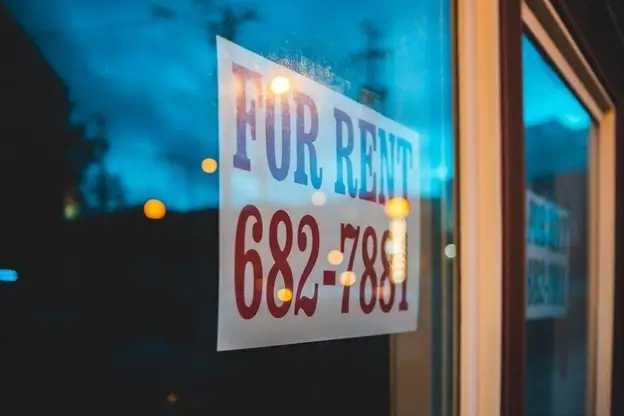


In recent years, a significant shift has occurred in the housing market, with more individuals opting for long-term rentals rather than pursuing the traditional path of home ownership. This change has been propelled by multiple economic factors that have redefined the perceptions and realities of living arrangements.
With rising real estate prices, fluctuating interest rates, and lifestyle changes, long-term renting has emerged as a viable alternative for many. Let’s explore the various economic influences that have driven this transition, shedding light on how societal norms and financial circumstances intertwine to make renting a more appealing choice.
The most significant factor influencing the trend toward long-term renting is the sharp increase in housing prices across many urban centers. The dramatic rise in cities like San Francisco and New York has made home ownership inaccessible for first-time buyers. Know that renting has become the new purchase is a viable solution for those who still want to live in desirable areas without the financial burden of a mortgage. Even suburban and rural markets have experienced a rise in costs as demand increases.
Areas that were once affordable have transformed, forcing potential buyers to rethink their options. The growth in rental markets has led to a more vibrant rental culture, with many landlords providing amenities and services to attract long-term tenants. More people are seeing long-term rentals as a competitive choice, not a second-best option.
In the housing market, interest rates impact mortgage affordability. The recent economic climate has seen widespread fluctuations in interest rates, wreaking havoc on the ability of potential buyers to secure financing. Even a slight increase in interest rates can raise monthly mortgage payments and push the cost of home ownership beyond the means of many buyers.
Renting enables individuals to avoid the risks associated with variable mortgage rates. Instead of committing to a potentially higher monthly payment should interest rates rise again, renters can opt for fixed lease terms. This allows them to budget accordingly and avoid the stress of market volatility. Many are choosing to invest in experiences, recognizing that not all investments require ownership.
The modern job market is characterized by increased mobility and economic uncertainty, compelling individuals to reconsider the ties of home ownership. Companies are adapting remote work options, allowing employees more flexibility to relocate for career opportunities. It promotes a transient lifestyle where renting becomes the logical choice: individuals can pursue new job prospects without carrying the burden of selling a home.
Many prefer renting over buying in an unpredictable market where job security is in question. The potential for job loss, economic downturns, or company relocations can make purchasing a home a challenge. Renting provides a safety net, allowing individuals the ability to downsize or relocate as needed without the complication of selling their property.
Demographic trends influence the shift toward long-term renting. Younger generations prioritize experiences over property. Many in these age groups are delaying traditional milestones such as marriage and homeownership to focus on career development and travel. The desire for stability doesn’t necessarily mean acquiring a home but cultivating a living environment that suits their changing needs.
Populations are diversifying, with more individuals opting for urban living that supports lifestyles promoting entertainment, dining, and cultural experiences. For many, the allure of vibrant neighborhoods, complete with short commutes and social interactions, outweighs the perceived benefits of owning a home.
Technology is reshaping how individuals seek housing, making renting more accessible and user-friendly. With the advent of online rental platforms and mobile applications, potential tenants can efficiently browse available properties tailored to their needs. This ease of access breaks down geographical barriers so that individuals can relocate effortlessly.
The surge of virtual tours and instant communication means prospective renters can find their ideal home without time-consuming trips or extensive research. Tech-driven tools like appraisal websites provide valuable insights into rental market trends. Renters can now make informed decisions based on comprehensive data about the local market.
More and more individuals continue to struggle with the high costs of home ownership, and investors are pivoting their strategies to capitalize on the growing demand for rental properties. With rising rental rates providing attractive returns, many real estate investors and corporations are converting single-family homes into rental units, transforming the housing market.
As institutional investors pour capital into residential rental markets, the quality of rental properties has improved. Many landlords are improving amenities and services offered to attract long-term tenants. With these developments, renters benefit from a growing selection of appealing living arrangements, further fortifying the long-term rental trend.
The rising costs associated with home ownership, including property taxes, maintenance, and insurance, can pose substantial financial burdens. Long-term renting allows occupants to budget more predictably, limiting unexpected expenses related to property ownership. A better knowledge of the comprehensive costs associated with renting versus buying informs many people's decisions.
Rent includes amenities such as utilities, maintenance, and security within the monthly costs, providing easier access to budgeting tools. This financial clarity encourages families to remain within their means, steering them away from the dangerous trenches of accruing debt associated with irresponsible purchasing. Emphasizing prudent financial decisions, renting can be perceived as a safer, more manageable approach to living.
Long-term renting offers a level of lifestyle flexibility that aligns with modern values. Many individuals prioritize convenience, mobility, and work-life balance. Renters enjoy the freedom to relocate for personal or professional reasons without the constraints of selling a property.
In many cases, rental communities provide appealing amenities, such as fitness centers, co-working spaces, maintenance services, and recreational facilities, that improve daily living experiences. These perks exceed what new homeowners could afford in a purchased property.
Renting promotes a simpler lifestyle, free from the ongoing costs and time commitments associated with property upkeep, renovations, or repairs. For those seeking a higher quality of life with less long-term obligation, renting provides an attractive path.

Various economic factors are reshaping the housing landscape, driving individuals toward long-term rentals rather than traditional home ownership. From rising housing prices and fluctuating interest rates to changing demographics and technological advancements, the allure of renting is clear. Long-term renting offers a practical solution and aligns with lifestyle preferences. As this shift continues, society will likely witness a transformation in the perception and realities of renting.